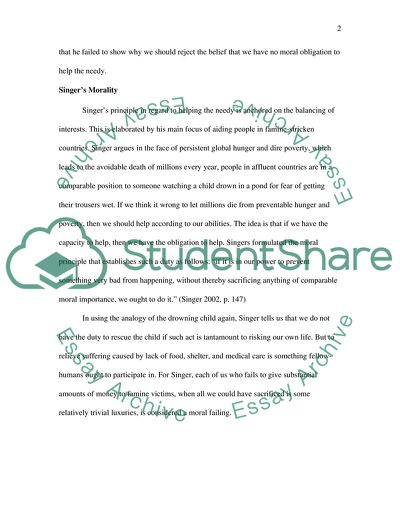Cite this document
(Famine, Affluence, and Morality Case Study Example | Topics and Well Written Essays - 1750 words, n.d.)
Famine, Affluence, and Morality Case Study Example | Topics and Well Written Essays - 1750 words. https://studentshare.org/philosophy/1718461-philosophy-argument
Famine, Affluence, and Morality Case Study Example | Topics and Well Written Essays - 1750 words. https://studentshare.org/philosophy/1718461-philosophy-argument
(Famine, Affluence, and Morality Case Study Example | Topics and Well Written Essays - 1750 Words)
Famine, Affluence, and Morality Case Study Example | Topics and Well Written Essays - 1750 Words. https://studentshare.org/philosophy/1718461-philosophy-argument.
Famine, Affluence, and Morality Case Study Example | Topics and Well Written Essays - 1750 Words. https://studentshare.org/philosophy/1718461-philosophy-argument.
“Famine, Affluence, and Morality Case Study Example | Topics and Well Written Essays - 1750 Words”. https://studentshare.org/philosophy/1718461-philosophy-argument.


